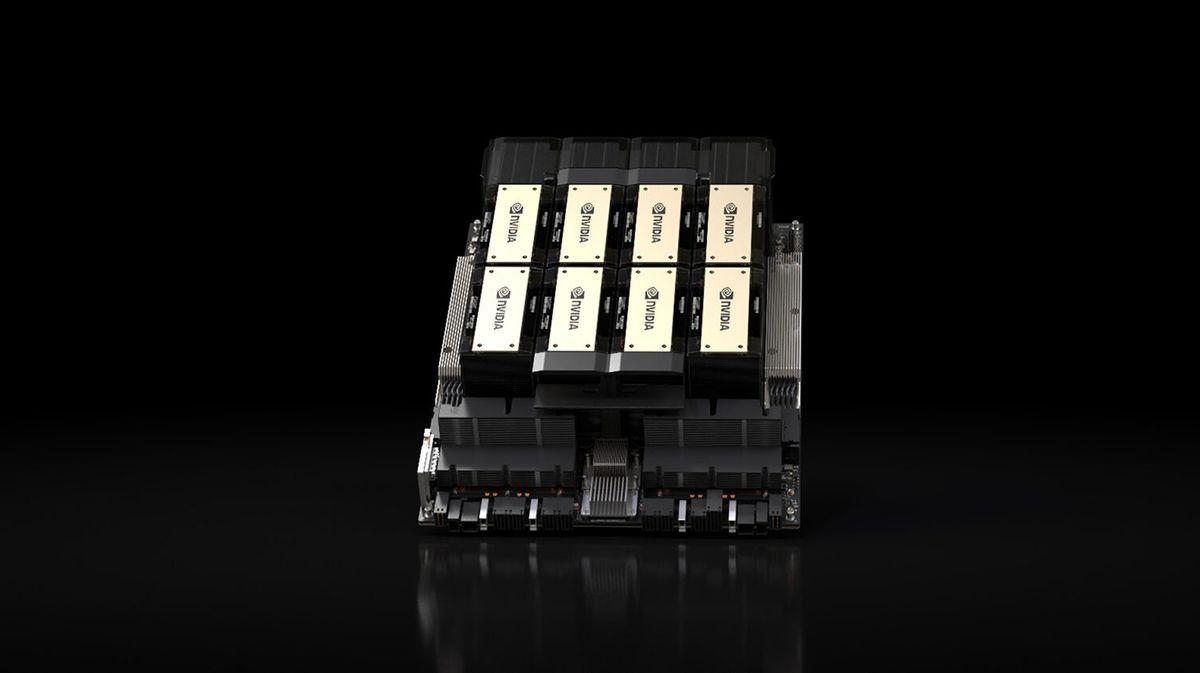Nvidia CEO Expresses Disappointment Over China's AI Chip Ban Amid Geopolitical Tensions
7 Sources
7 Sources
[1]
Nvidia CEO says he's 'disappointed' after report China has banned its AI chips
LONDON -- Nvidia CEO Jensen Huang has weighed in on the chipmaker's struggles in China after a report claimed the country has banned its AI semiconductors. He said he was "disappointed" after the Financial Times on Wednesday reported that the Cyberspace Administration of China (CAC) had ordered companies -- including TikTok parent company ByteDance and Alibaba -- not to buy Nvidia AI chips, including its less powerful H20 chip. In response to a question on the FT report, Huang said Wednesday that "we can only be in service of a market if the country wants us to be." "We probably contributed more to the China market than most countries have. And I'm disappointed with what I see," Huang said. "But they have larger agendas to work out between China and the United States, and I'm understanding of that." It comes after a tumultuous few years for Nvidia's business in China, which Huang described as "a bit of a rollercoaster." "We've guided all financial analysts not to include China" in financial forecasts, Huang told reporters Wednesday at a press briefing in London. "The reason for that is because that's largely going to be within the discussions of the United States government and Chinese government." Previously, the U.S. had imposed restrictions on exports of Nvidia's AI chips to China -- including a less powerful server chip called the H20 -- over national security concerns. However, in August, the White House announced that President Donald Trump and Huang had struck a deal under which Nvidia would receive export licenses in exchange for 15% of Chinese sales of the H20 going to the U.S. government. The latest report would represent another blow to Nvidia's China business. It comes after China's State Administration for Market Regulation (SAMR) earlier this week opened an anti-monopoly investigation into Nvidia over its acquisition of Mellanox, an Israeli technology company that creates network solutions for data centers and servers. Huang is accompanying U.S. President Donald Trump on his state visit to the U.K. this week. On Tuesday, Nvidia announced £11 billion ($15 billion) of investment into U.K. AI infrastructure. And it was not alone -- a slew of other U.S. tech giants, including Microsoft, Google and Salesforce, have also announced multibillion-dollar AI investments in the country. Regardless of the current geopolitical situation, Huang stressed the importance of China's AI sector. "The Chinese market is important. It's large. The technology industry is vibrant. We've been in service of it for 30 years," the Nvidia boss said. He added that Nvidia would "continue to be supportive of the Chinese government and Chinese companies as they wish, and we're of course going to continue to support the U.S. government as they all sort through these geopolitical policies."
[2]
Nvidia CEO Huang says he's disappointed by China chip curbs
LONDON (AP) -- The CEO of Nvidia, which faces tight restrictions on selling its chips to China amid the U.S.-China battle over trade and tech, said he's disappointed about the situation. Jensen Huang said he expects to discuss the issue with President Donald Trump at a state banquet hosted by the British government that they'll be attending on Wednesday night. Santa Clara, California-based Nvidia, the world's most valuable company, is restricted from exporting its most advanced chips, which are in demand for developing artificial intelligence, to China. This week, Beijing regulators also targeted the company, accusing it of antitrust breaches stemming from a 2020 acquisition of an Israeli tech company. Adding to the problems, the Financial Times reported Wednesday, citing unnamed sources, that China's internet regulator is banning domestic tech companies from buying an Nvidia chip model tailored for the local market. Asked about the report at a media briefing in London, Jensen Huang said he didn't have a reaction, but added, "I think that we could only be in service of a market if the country wants us to be." China is the world's second biggest AI computing market and Nvidia has contributed more than most companies, he said. "I'm disappointed with what I see, but they have larger agendas to work out, you know, between China and the United States, and I'm understanding of that, and we're patient about it," he said. Huang said the company will continue to be "supportive" of both governments as they "sort through these geopolitical policies", adding there's "not very much anxiety there." Huang said he hasn't yet spoken to Trump about the latest developments, "but I'll see him tonight, and he'll probably ask me. I'll probably say something similar." The CEO is visiting London at same time as Trump to unveil a flurry of new investments that coincide with the president's visit, including a deal to supply tens of thousands of its processor chips for data centers that will be part of the U.K. arm of Stargate, a Trump-backed AI infrastructure project led by OpenAI.
[3]
Nvidia boss 'disappointed' by China chip ban
Nvidia - the world's leading chipmaker - had previously been banned from selling its most advanced chips to China, before Trump reversed the ban in July. Nvidia has to pay 15% of its Chinese revenues to the US government in an unprecedented deal struck in the summer. On Wednesday morning, the Financial Times reported that China's Cyberspace Administration had told tech companies to stop using Nvidia chips which had specifically been manufactured for the Chinese market. Shares of the US company were down more than 1% in premarket trading. Mr Huang said he would "support the US" as they try to resolve geopolitical issues, and would tell the same thing to Trump if he is asked about it on Wednesday evening. The UK is hosting Trump at a state banquet, where tech bosses are also expected to attend. Nvidia became the first company in the world to pass a $4tn (£2.9tn) valuation earlier in 2025. It has become central to the AI boom, with its computer chips powering data centres around the world. But China wants to rival the US's global dominance in the AI space, and has been developing its own chips as part of its AI strategy. Large tech companies such as DeepSeek, Tencent and Alibaba had been among the Chinese companies which had ordered Nvidia chips before the order to stop buying them. Nvidia was one of many US tech companies to announce investments into the UK as a tech pact between the two companies was signed. This includes supplying chips to the Stargate UK data centre which will open in north-east England, in collaboration with OpenAI, Arm and NScale.
[4]
Nvidia CEO Huang says he's disappointed by China chip curbs
LONDON (AP) -- The CEO of Nvidia, which faces tight restrictions on selling its chips to China amid the U.S.-China battle over trade and tech, said he's disappointed about the situation. Jensen Huang said he expects to discuss the issue with President Donald Trump at a state banquet hosted by the British government that they'll be attending on Wednesday night. Santa Clara, California-based Nvidia, the world's most valuable company, is restricted from exporting its most advanced chips, which are in demand for developing artificial intelligence, to China. This week, Beijing regulators also targeted the company, accusing it of antitrust breaches stemming from a 2020 acquisition of an Israeli tech company. Adding to the problems, the Financial Times reported Wednesday, citing unnamed sources, that China's internet regulator is banning domestic tech companies from buying an Nvidia chip model tailored for the local market. Asked about the report at a media briefing in London, Jensen Huang said he didn't have a reaction, but added, "I think that we could only be in service of a market if the country wants us to be." China is the world's second biggest AI computing market and Nvidia has contributed more than most companies, he said. "I'm disappointed with what I see, but they have larger agendas to work out, you know, between China and the United States, and I'm understanding of that, and we're patient about it," he said. Huang said the company will continue to be "supportive" of both governments as they "sort through these geopolitical policies", adding there's "not very much anxiety there." Huang said he hasn't yet spoken to Trump about the latest developments, "but I'll see him tonight, and he'll probably ask me. I'll probably say something similar." The CEO is visiting London at same time as Trump to unveil a flurry of new investments that coincide with the president's visit, including a deal to supply tens of thousands of its processor chips for data centers that will be part of the U.K. arm of Stargate, a Trump-backed AI infrastructure project led by OpenAI.
[5]
Nvidia CEO Huang says he's disappointed by China chip curbs
LONDON -- The CEO of Nvidia, which faces tight restrictions on selling its chips to China amid the U.S.-China battle over trade and tech, said he's disappointed about the situation. Jensen Huang said he expects to discuss the issue with President Donald Trump at a state banquet hosted by the British government that they'll be attending on Wednesday night. Santa Clara, California-based Nvidia, the world's most valuable company, is restricted from exporting its most advanced chips, which are in demand for developing artificial intelligence, to China. This week, Beijing regulators also targeted the company, accusing it of antitrust breaches stemming from a 2020 acquisition of an Israeli tech company. Adding to the problems, the Financial Times reported Wednesday, citing unnamed sources, that China's internet regulator is banning domestic tech companies from buying an Nvidia chip model tailored for the local market. Asked about the report at a media briefing in London, Jensen Huang said he didn't have a reaction, but added, "I think that we could only be in service of a market if the country wants us to be." China is the world's second biggest AI computing market and Nvidia has contributed more than most companies, he said. "I'm disappointed with what I see, but they have larger agendas to work out, you know, between China and the United States, and I'm understanding of that, and we're patient about it," he said. Huang said the company will continue to be "supportive" of both governments as they "sort through these geopolitical policies", adding there's "not very much anxiety there." Huang said he hasn't yet spoken to Trump about the latest developments, "but I'll see him tonight, and he'll probably ask me. I'll probably say something similar." The CEO is visiting London at same time as Trump to unveil a flurry of new investments that coincide with the president's visit, including a deal to supply tens of thousands of its processor chips for data centers that will be part of the U.K. arm of Stargate, a Trump-backed AI infrastructure project led by OpenAI.
[6]
Nvidia CEO Huang Says He's Disappointed by China Chip Curbs
LONDON (AP) -- The CEO of Nvidia, which faces tight restrictions on selling its chips to China amid the U.S.-China battle over trade and tech, said he's disappointed about the situation. Jensen Huang said he expects to discuss the issue with President Donald Trump at a state banquet hosted by the British government that they'll be attending on Wednesday night. Santa Clara, California-based Nvidia, the world's most valuable company, is restricted from exporting its most advanced chips, which are in demand for developing artificial intelligence, to China. This week, Beijing regulators also targeted the company, accusing it of antitrust breaches stemming from a 2020 acquisition of an Israeli tech company. Adding to the problems, the Financial Times reported Wednesday, citing unnamed sources, that China's internet regulator is banning domestic tech companies from buying an Nvidia chip model tailored for the local market. Asked about the report at a media briefing in London, Jensen Huang said he didn't have a reaction, but added, "I think that we could only be in service of a market if the country wants us to be." China is the world's second biggest AI computing market and Nvidia has contributed more than most companies, he said. "I'm disappointed with what I see, but they have larger agendas to work out, you know, between China and the United States, and I'm understanding of that, and we're patient about it," he said. Huang said the company will continue to be "supportive" of both governments as they "sort through these geopolitical policies", adding there's "not very much anxiety there." Huang said he hasn't yet spoken to Trump about the latest developments, "but I'll see him tonight, and he'll probably ask me. I'll probably say something similar." The CEO is visiting London at same time as Trump to unveil a flurry of new investments that coincide with the president's visit, including a deal to supply tens of thousands of its processor chips for data centers that will be part of the U.K. arm of Stargate, a Trump-backed AI infrastructure project led by OpenAI.
[7]
Nvidia CEO Huang says he's disappointed by China chip curbs
LONDON -- The CEO of Nvidia, which faces tight restrictions on selling its chips to China amid the U.S.-China battle over trade and tech, said he's disappointed about the situation. Jensen Huang said he expects to discuss the issue with U.S. President Donald Trump at a state banquet hosted by the British government that they'll be attending on Wednesday night. Santa Clara, Calif.-based Nvidia, the world's most valuable company, is restricted from exporting its most advanced chips, which are in demand for developing artificial intelligence, to China. This week, Beijing regulators also targeted the company, accusing it of antitrust breaches stemming from a 2020 acquisition of an Israeli tech company. Adding to the problems, the Financial Times reported Wednesday, citing unnamed sources, that China's internet regulator is banning domestic tech companies from buying an Nvidia chip model tailored for the local market. Asked about the report at a media briefing in London, Jensen Huang said he didn't have a reaction, but added, "I think that we could only be in service of a market if the country wants us to be." China is the world's second biggest AI computing market and Nvidia has contributed more than most companies, he said. "I'm disappointed with what I see, but they have larger agendas to work out, you know, between China and the United States, and I'm understanding of that, and we're patient about it," he said. Huang said the company will continue to be "supportive" of both governments as they "sort through these geopolitical policies", adding there's "not very much anxiety there." Huang said he hasn't yet spoken to Trump about the latest developments, "but I'll see him tonight, and he'll probably ask me. I'll probably say something similar." The CEO is visiting London at same time as Trump to unveil a flurry of new investments that coincide with the president's visit, including a deal to supply tens of thousands of its processor chips for data centers that will be part of the U.K. arm of Stargate, a Trump-backed AI infrastructure project led by OpenAI.
Share
Share
Copy Link
Nvidia CEO Jensen Huang addresses China's reported ban on the company's AI chips, expressing disappointment while acknowledging broader geopolitical issues. The situation unfolds as Nvidia announces major AI investments in the UK during President Trump's state visit.
Nvidia's China Setback
Nvidia, the world's most valuable chipmaker, faces a significant challenge in the Chinese market as reports emerge of a ban on its AI chips. CEO Jensen Huang expressed his disappointment during a press briefing in London, stating, "I'm disappointed with what I see, but they have larger agendas to work out, you know, between China and the United States, and I'm understanding of that"
1
2
.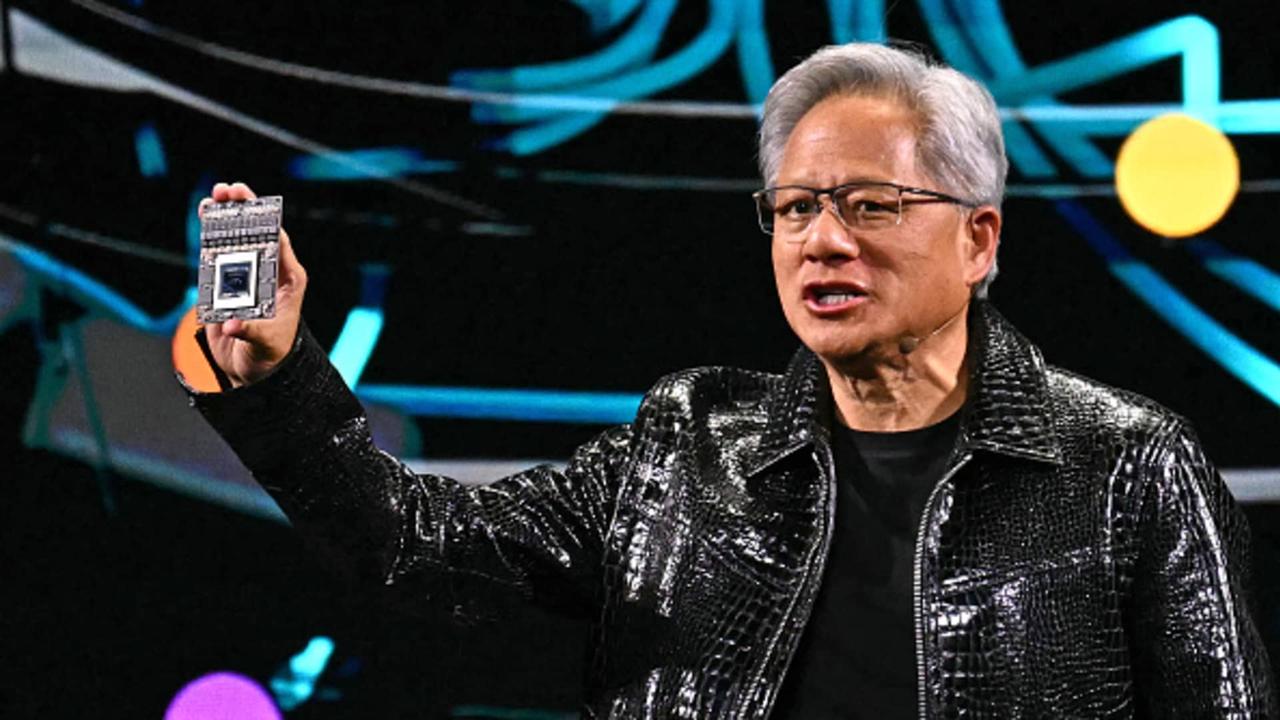
Source: CNBC
The Financial Times reported that China's Cyberspace Administration has ordered domestic tech companies, including ByteDance and Alibaba, to stop purchasing Nvidia's AI chips, even those specifically designed for the Chinese market
1
3
. This development comes after a period of fluctuating relations between Nvidia and China, which Huang described as "a bit of a rollercoaster"1
.Geopolitical Tensions and Regulatory Challenges
The situation is further complicated by ongoing geopolitical tensions between the United States and China. Previously, the U.S. had imposed restrictions on Nvidia's exports of advanced AI chips to China, citing national security concerns
1
2
.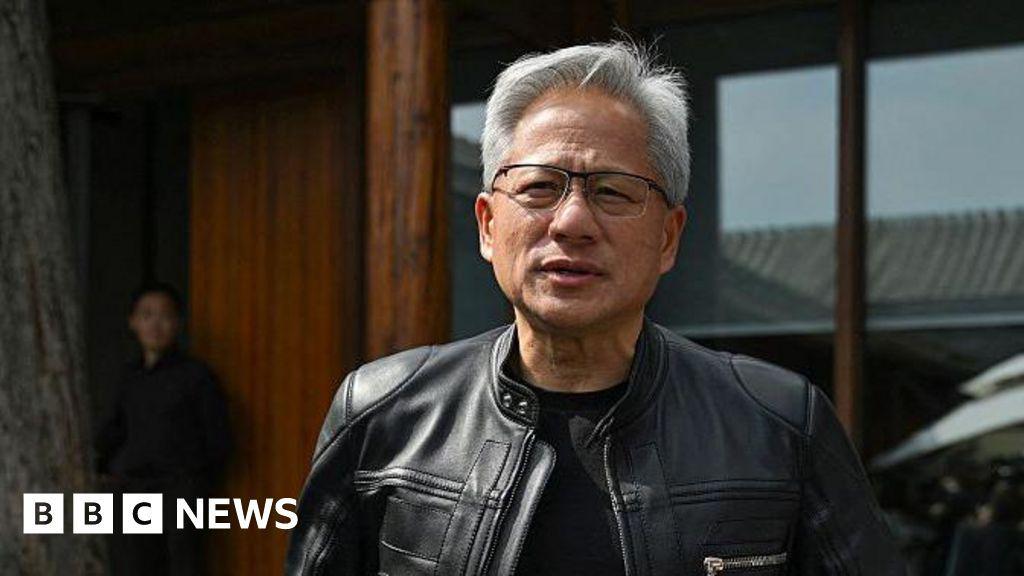
Source: BBC
In August, a deal was struck between President Donald Trump and Nvidia, allowing the company to receive export licenses in exchange for 15% of Chinese sales of the H20 chip going to the U.S. government
1
. However, this arrangement now seems to be in jeopardy with China's reported ban.Adding to Nvidia's challenges, China's State Administration for Market Regulation (SAMR) has opened an anti-monopoly investigation into the company's acquisition of Mellanox, an Israeli technology firm
1
.Related Stories
Nvidia's UK Investment and Future Outlook
Despite these setbacks, Nvidia remains committed to global expansion. During President Trump's state visit to the UK, Huang announced a substantial £11 billion ($15 billion) investment in UK AI infrastructure
1
3
. This investment includes supplying chips to the Stargate UK data center, a collaboration with OpenAI, Arm, and NScale3
5
.
Source: AP
Huang emphasized the importance of the Chinese market, describing it as "large" and "vibrant"
1
. He stated that Nvidia would "continue to be supportive of the Chinese government and Chinese companies as they wish, and we're of course going to continue to support the U.S. government as they all sort through these geopolitical policies"1
.As Nvidia navigates these complex international relations, Huang is expected to discuss the China situation with President Trump at a state banquet hosted by the British government
2
4
. The outcome of these discussions could have significant implications for the future of AI chip trade between the U.S., China, and other global markets.References
Summarized by
Navi
[4]
Related Stories
Nvidia Set to Resume AI Chip Sales to China Amid Regulatory Shifts
10 Jul 2025•Technology
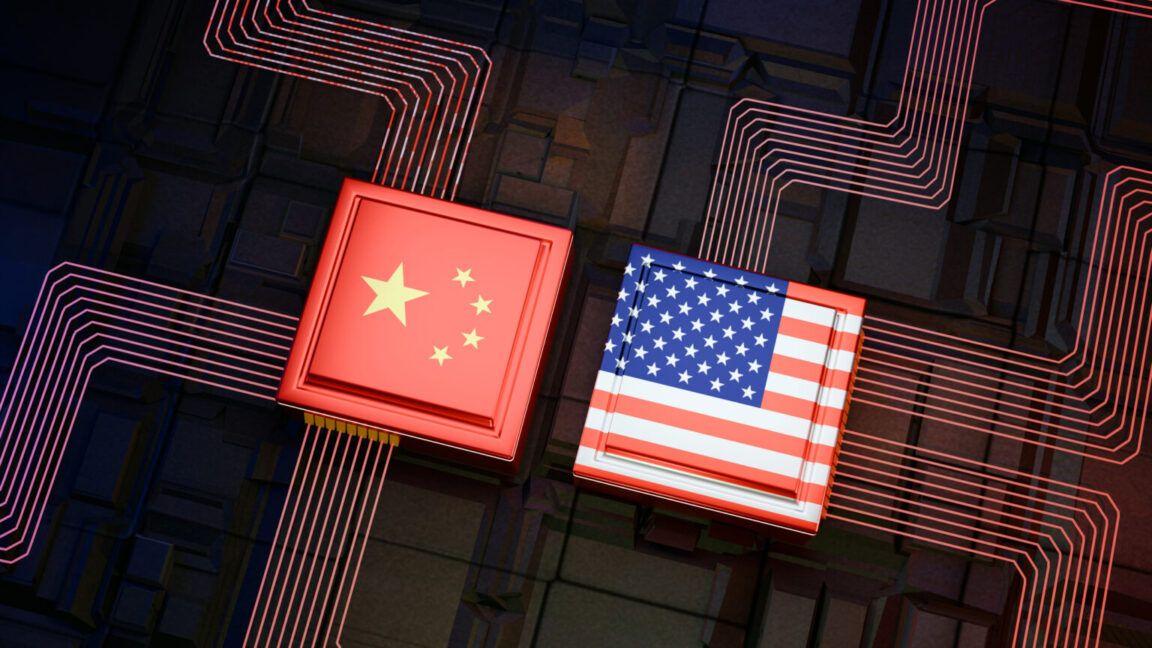
Nvidia CEO Praises Trump's Policies Amid China Export Challenges
24 May 2025•Business and Economy
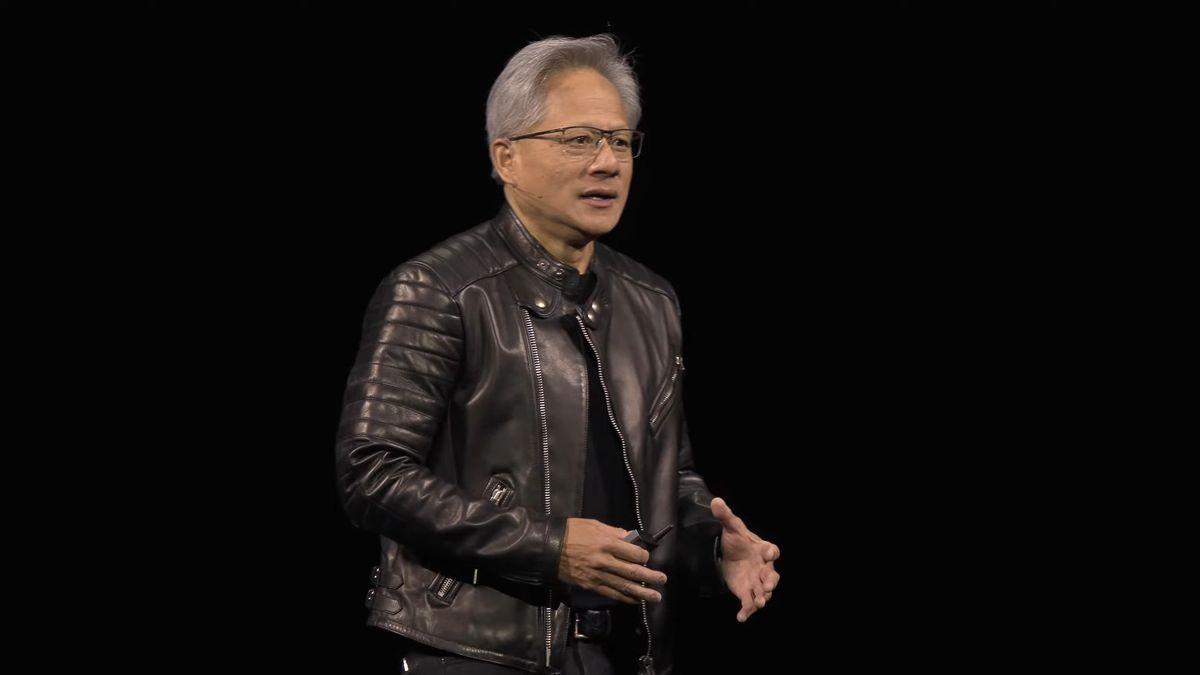
Nvidia CEO Confirms No Plans to Ship Blackwell GPUs to China Amid Ongoing Trade Restrictions
07 Nov 2025•Business and Economy
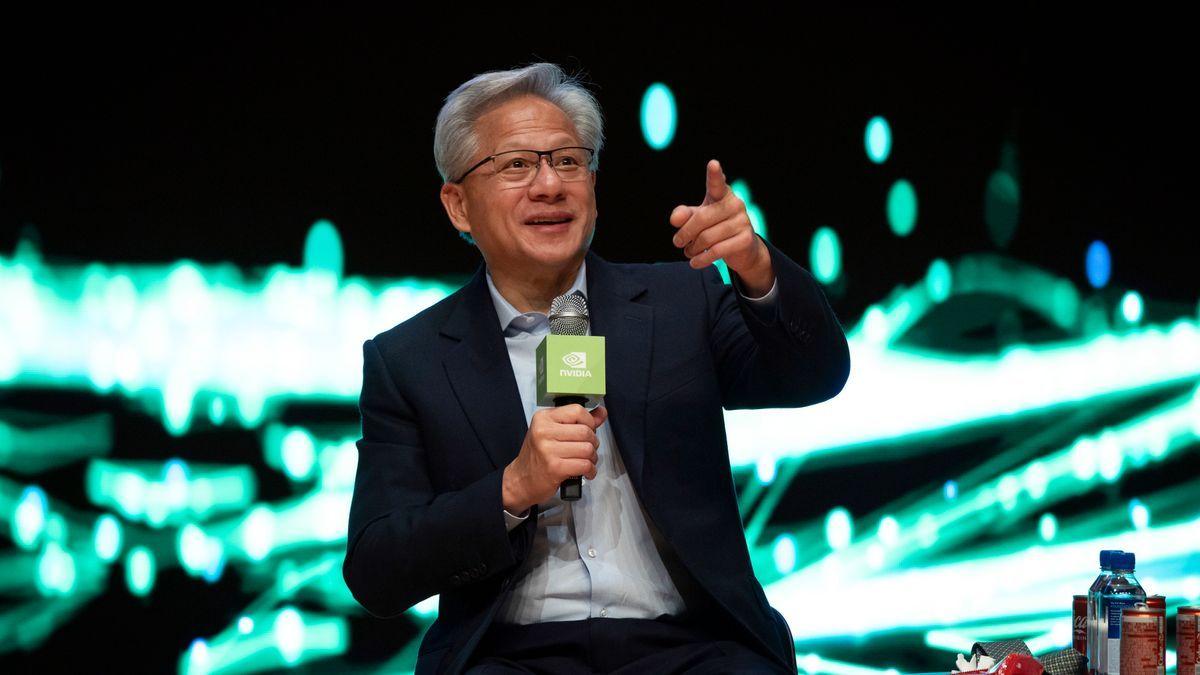
Recent Highlights
1
ByteDance's Seedance 2.0 AI video generator triggers copyright infringement battle with Hollywood
Policy and Regulation

2
Demis Hassabis predicts AGI in 5-8 years, sees new golden era transforming medicine and science
Technology

3
Nvidia and Meta forge massive chip deal as computing power demands reshape AI infrastructure
Technology

